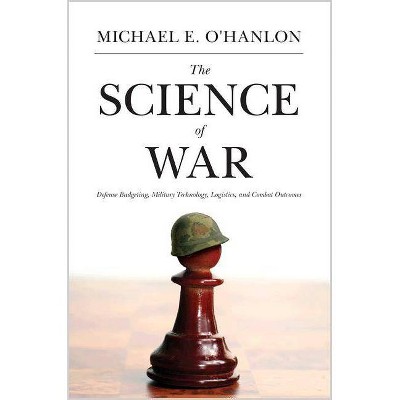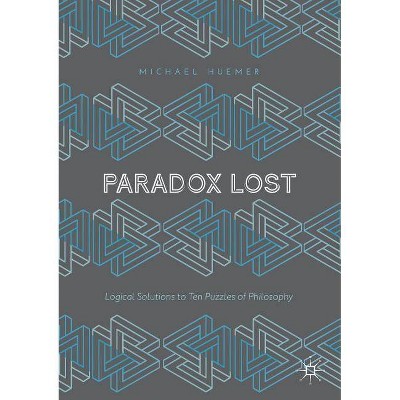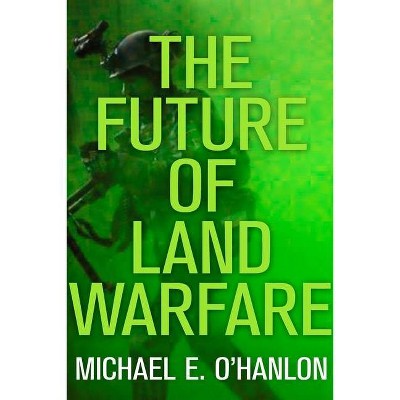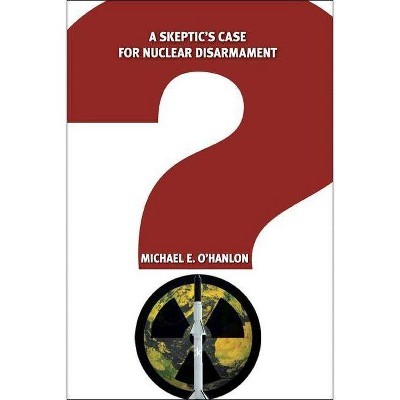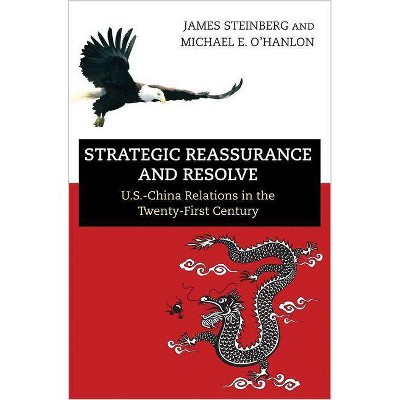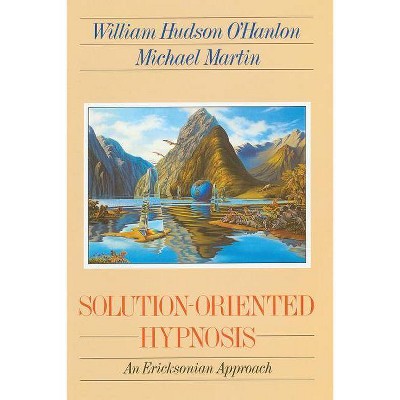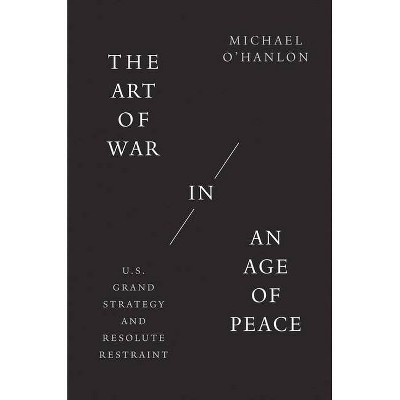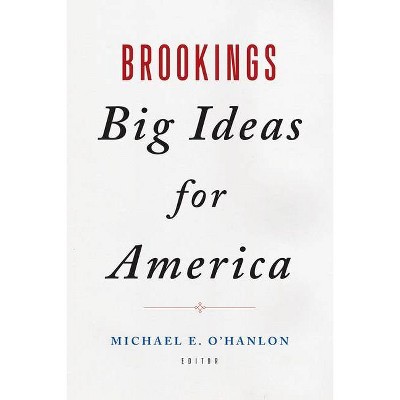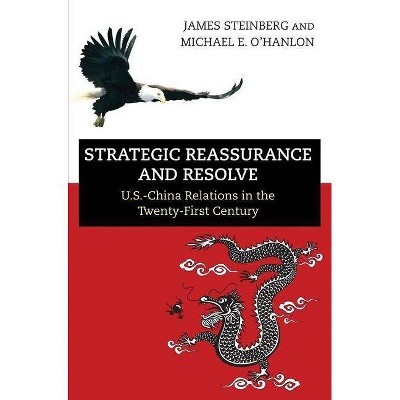The Senkaku Paradox - by Michael E O'Hanlon (Paperback)
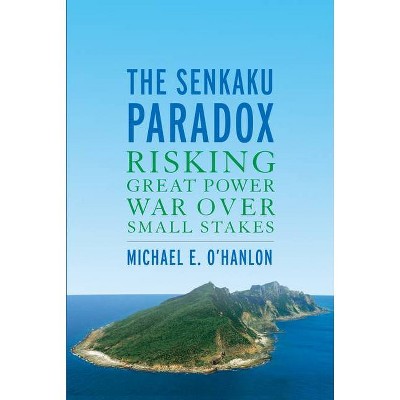
Similar Products
Products of same category from the store
AllProduct info
<p/><br></br><p><b> About the Book </b></p></br></br>"In recent years, the Pentagon has elevated its concerns about Russia and China as potential military threats to the United States and its allies. But what issues could provoke actual conflict between the United States and either country? And how could such a conflict be contained before it took the world to the brink of thermonuclear catastrophe, as was feared during the cold war? Defense expert Michael O'Hanlon wrestles with these questions in this insightful book, setting them within the broader context of hegemonic change and today's version of great-power competition. The book examines how a local crisis could escalate into a broader and much more dangerous threat to peace. What if, for example, Russia's "little green men" seized control of a community, like Narva or an even smaller town in Estonia, now a NATO ally? Or, what if China seized one of the uninhabited Senkaku islands now claimed and administered by Japan, or imposed a partial blockade of Taiwan? Such threats are not necessarily imminent, but they are far from inconceivable. Washington could be forced to choose, in these and similar cases, between risking major war to reverse the aggression, and appeasing China or Russia in ways that could jeopardize the broader global order. O'Hanlon argues that the United States needs a better range of options for dealing with such risks to peace. He advocates "integrated deterrence," which combines military elements with economic warfare. The military components would feature strengthened forward defenses as well as, possibly, limited military options against Russian or Chinese assets in other theaters."--Provided by publisher.<p/><br></br><p><b> Book Synopsis </b></p></br></br><p><b>America needs better options for resolving potential crises</b><p>In recent years, the Pentagon has elevated its concerns about Russia and China as potential military threats to the United States and its allies. But what issues could provoke actual conflict between the United States and either country? And how could such a conflict be contained before it took the world to the brink of thermonuclear catastrophe, as was feared during the cold war?</p><p>Defense expert Michael O'Hanlon wrestles with these questions in this insightful book, setting them within the broader context of hegemonic change and today's version of great-power competition.</p><p>The book examines how a local crisis could escalate into a broader and much more dangerous threat to peace. What if, for example, Russia's "little green men" seized control of a community, like Narva or an even smaller town in Estonia, now a NATO ally? Or, what if China seized one of the uninhabited Senkaku islands now claimed and administered by Japan, or imposed a partial blockade of Taiwan?</p><p>Such threats are not necessarily imminent, but they are far from inconceivable. Washington could be forced to choose, in these and similar cases, between risking major war to reverse the aggression, and appeasing China or Russia in ways that could jeopardize the broader global order.</p><p>O'Hanlon argues that the United States needs a better range of options for dealing with such risks to peace. He advocates "integrated deterrence," which combines military elements with economic warfare. The military components would feature strengthened forward defenses as well as, possibly, limited military options against Russian or Chinese assets in other theaters. Economic warfare would include offensive elements, notably sanctions, as well as measures to ensure the resilience of the United States and allies against possible enemy reprisal.</p><p>The goal is to deter war through a credible set of responses that are more commensurate than existing policy with the stakes involved in such scenarios.</p><p/><br></br><p><b> Review Quotes </b></p></br></br><br><p>"O'Hanlon provides an interesting perspective on small-stakes conflict and the potential consequences through military, economic, and technological lenses. He has done a compelling job of presenting historical and data-driven evidence while humbly acknowledging many assumptions to support a new strategy addressing limited conflict. This is an excellent read for anyone interested in a comprehensive perspective on limited conflict and potential escalatory consequences."--Thomas Bowman, H-War</p><br><br><p>"<i>The Senkaku Paradox</i> is not a science fiction or stunning thriller, but a great way to get the strategic side of your brain thinking about future conflict scenarios. The analysis in the book are not just plausible but educational and a good tool for the warrior toolbag (or book bag)."--Colonel Amy Ebitz, Marine Corps Association & Foundation</p><br><br><p>"<i>The Senkaku Paradox</i> is strong on war-gaming approaches and offers valuable perspectives. Worth reading."--<i>Defense and Foreign Affairs' Strategic Policy</i><br><p/><br></br><p><b> About the Author </b></p></br></br><p><b>Michael O'Hanlon</b> is a senior fellow in Foreign Policy at the Brookings Institution, where he specializes in U.S. defense strategy, the use of military force, and American national security policy. He is also director of research for the Foreign Policy program at Brookings. He is an adjunct professor at Columbia, Princeton, Syracuse, and the University of Denver. He is also a member of the International Institute for Strategic Studies. O'Hanlon was a member of the external advisory board at the Central Intelligence Agency from 2011 to 2012.</p>
Price History
Cheapest price in the interval: 27.99 on October 27, 2021
Most expensive price in the interval: 27.99 on November 8, 2021
Price Archive shows prices from various stores, lets you see history and find the cheapest. There is no actual sale on the website. For all support, inquiry and suggestion messagescommunication@pricearchive.us
